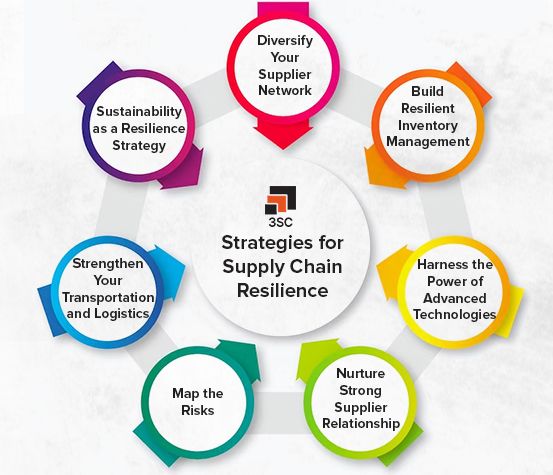The Role of AI in Modern Supply Chains
In recent years, Artificial Intelligence (AI) has been revolutionizing various industries, and the supply chain is no exception. With its ability to analyze vast amounts of data, improve efficiency, and predict outcomes, AI is becoming an invaluable tool for companies looking to streamline their supply chain operations. In this article, we will explore the role of AI in modern supply chains and how it is shaping the future of logistics.
Improved Demand Forecasting
One of the key ways AI is transforming supply chains is through improved demand forecasting. By analyzing historical sales data, market trends, and other relevant factors, AI can predict future demand with unprecedented accuracy. This allows companies to optimize their inventory levels, reduce stockouts, and minimize excess inventory, ultimately saving time and money.
Enhanced Inventory Management
AI-powered systems can also help companies better manage their inventory. By analyzing factors such as lead times, supplier reliability, and customer demand, AI can optimize inventory levels and ensure that products are in stock when they are needed. This not only improves customer satisfaction but also reduces carrying costs and minimizes the risk of obsolescence.
Optimized Route Planning
Another area where AI is making a significant impact on supply chains is in route planning. By considering factors such as traffic patterns, weather conditions, and delivery windows, AI algorithms can optimize delivery routes to minimize fuel costs and reduce delivery times. This not only saves money but also improves efficiency and enhances customer satisfaction.
Real-Time Tracking and Visibility
AI-powered monitoring systems are providing companies with real-time tracking and visibility into their supply chains. By collecting and analyzing data from various sources, such as GPS trackers, sensors, and IoT devices, AI can provide up-to-date information on the location, condition, and status of goods in transit. This level of visibility allows companies to proactively address any issues that may arise and ensure that deliveries are made on time.
Enhanced Customer Service
AI is also improving customer service in supply chains. By analyzing customer data, preferences, and behavior, AI can personalize the shopping experience, recommend products, and respond to customer inquiries in real-time. This level of personalization not only enhances customer satisfaction but also increases loyalty and retention.
Conclusion
In conclusion, AI is transforming modern supply chains by improving demand forecasting, inventory management, route planning, tracking, visibility, and customer service. As companies continue to adopt AI technologies, they will benefit from increased efficiency, reduced costs, and improved customer satisfaction. The future of logistics is bright with AI leading the way.


